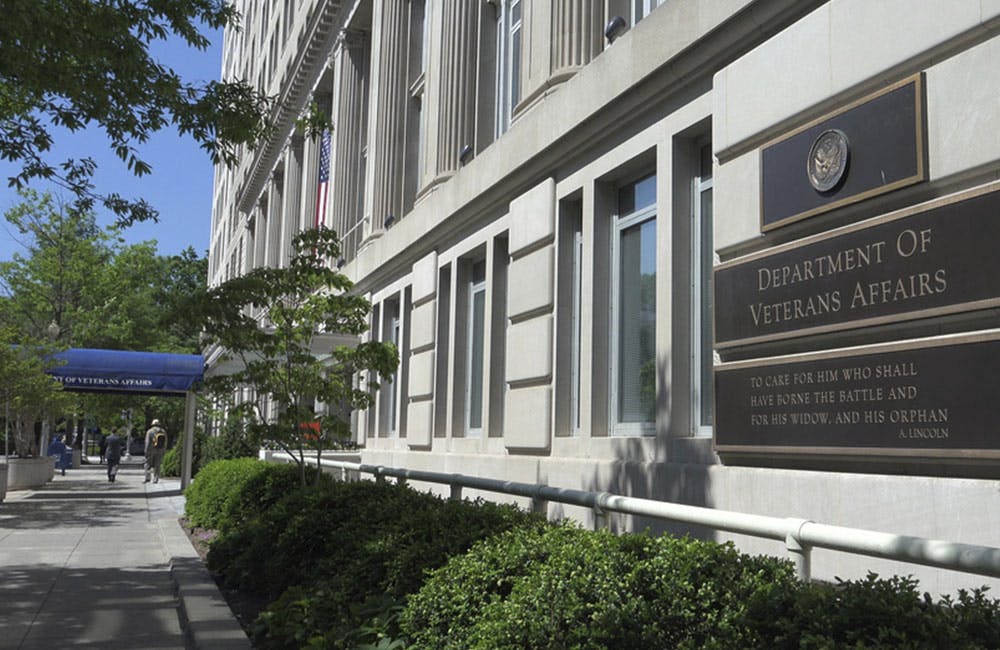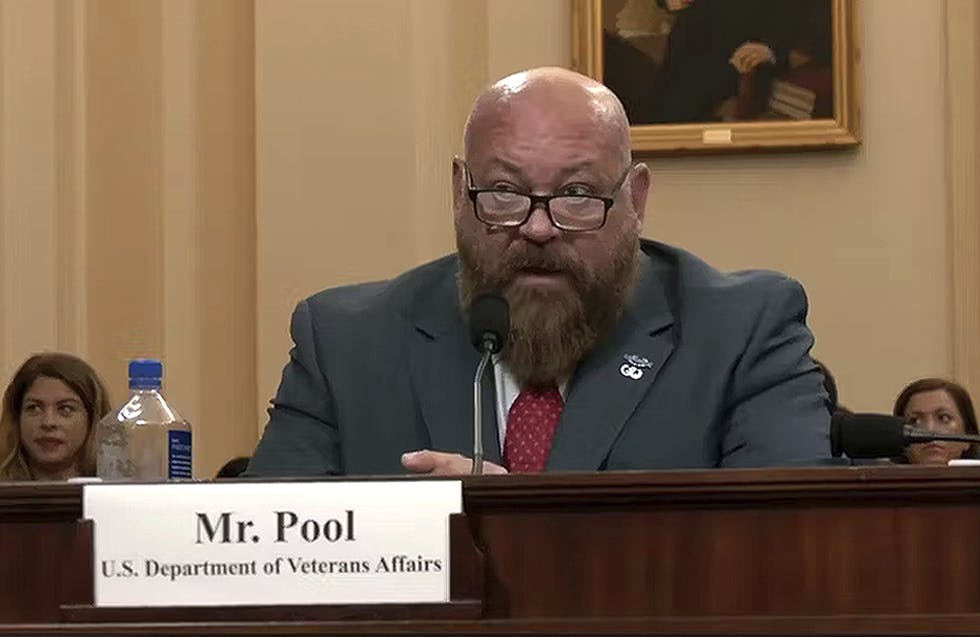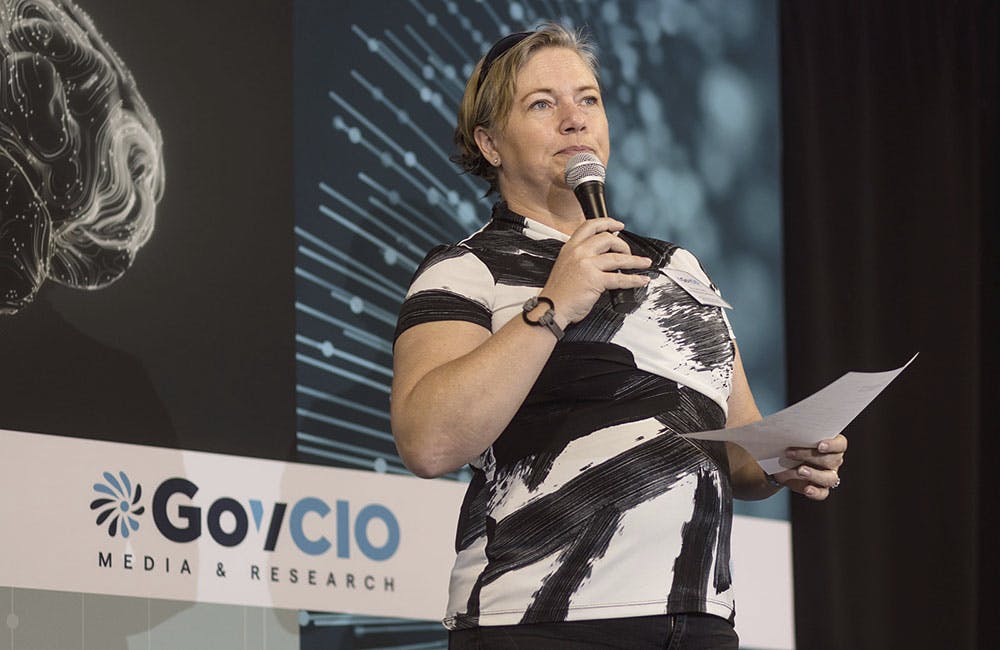Defense Entrepreneurs Tell Innovation Board that Collaboration is a ‘Linchpin’
Defense Entrepreneurs Board members say the DOD workforce and international security will benefit from more cooperation across organizations.

Members of the Defense Entrepreneurs Forum (DEF) joined the Defense Innovation Board (DIB) meeting last week to offer perspective on cross-national partnerships, innovation and interagency collaboration.
“Partnerships are seen as a linchpin in the Department of Defense and strategy deterrence as outlined in the 2022 National Security Strategy, yet little capacity and few initiatives exist in terms of fostering cross-national camaraderie via cultural intelligence and atmospherics, and these socio-economic human factors have taken a backseat to remain relevant and competitive,” Evanna Hu, CEO and partner at Omelas and DEF board member, said during the meeting.
Centering the Workforce
Meghan Metzger, CEO of Dcode and DEF board member, gave recommendations to DIB on how to develop a more innovative DOD workforce. She suggested stronger promotion pathways for workers who develop unique skillsets, so that the skills they learn are not wasted. The workforce, she said, needs to be a core component of innovation at DOD and should be encouraged to grow in their positions.
“A recommendation would be to look at the training and the upskilling of these careers that are in critical path,” she suggested. “How can we upskill them the technology to a level where they know how to do their jobs differently?”
Metzger also suggested that agencies limit their mindsets away from risk aversion to be better enabled to help skilled employees experiment with new technologies or methods to drive innovation. Senior leaders weren’t set up to manage IT programs or employees, but now “almost everything is an IT program” and leaders need to adjust to this new reality.
She also said that government needs to “bridge the skill gap, the pay gap, so that we can be on par, attract talent that might not have come to the organization otherwise, especially in those technical pathways, like data science and software development, and then allow for these types of roles to more easily and fluidly go back out into industry and come back in so that they can keep their knowledge fresh, learn and understand the commercial sector.”
Michael Madrid, director of strategic relationships at Starfish Space and DEF board member, said that innovation comes naturally to employees. He added that there is less of a need to incentivize those who push boundaries than it is to remove barriers and punishments if they fail in innovation.
“People who are naturally innovative or innovators don’t need a lot of positive reinforcement. We’ve seen programs throughout the years that offer cash bonuses for innovative ideas are trying to reward people for doing innovative things,” Madrid said. “But I think if you have that bug, you’re dying to go do it yourself. And you actually just need things to get out of your way.”
Innovation for the Ukraine Battlefield
The war in Ukraine was a focus of the meeting and the board members spoke about how innovation is needed if weapons development is expected to keep up with the state of progress on the battlefield.
“Ukraine’s in development mode, always. We’re in procurement mode, we’re trying to help them win the war with yesterday’s technology, which Russia has already responded to, and countered,” board member Will Roper said. “I would argue there’s likely never been a war in history that’s been won with the equipment that was possessed on day one.”
Additionally, Roper noted the issue of finding cost-effective ways to supply Ukrainians in their war effort. Instead of placing more burdens on supply chains, Roper said DOD should be “going back to the drawing board with our innovators and figuring out what new systems can help them win.”
This is a carousel with manually rotating slides. Use Next and Previous buttons to navigate or jump to a slide with the slide dots
-

White House Science Chief: US-Driven AI Sets Global Standards
Michael Kratsios outlined how American AI technology on the global stage will help standardize the tech and counter China’s influence.
5m read -

Modernizing Critical Infrastructure in the Face of Global Threats
Officials are expanding the latest strategies in boosting defense infrastructure, including securing satellite communications, upgrading enterprise-wide technology, optimizing data management.
20m watch -

Trump AI Orders Call for Speed in Building Infrastructure
The directives call for expanding AI infrastructure, streamlining federal permitting and promoting AI exports.
4m read -

DOD Accelerates Software Modernization with Agile DevSecOps Push
The Pentagon's software implementation plan tackles cultural hurdles and integrates security early to deliver critical capabilities faster.
6m read -

White House Unveils AI Action Plan to Secure Global Dominance
The strategy outlines steps to accelerate private sector innovation, build critical infrastructure and advance U.S. leadership in AI policy and security.
3m read -

VA's Platform One Powers Rapid Innovation to Bolster Digital Services
VA's Platform One accelerates software development timelines from weeks to hours, ultimately enhancing digital services for veterans.
5m read -

Doing More with Less is Muscle Memory for IRS, Former Deputy CIO Says
Darnita Trower discusses her experience, the legacy she’s left behind and how she pushed the IRS to modernize itself,
20m watch -

Opinion: Original Intelligence Is the Missing Piece for AI Transformation
Limitations of AI agents and development drive growing needs for workforce development and "original intelligence."
3m read -

VA CIO Targets Modern IT and Smarter Workforce Alignment
Agency leaders told lawmakers they are focused on trimming legacy systems and restructuring its workforce to streamline operations.
3m read -

Pentagon's $200M AI Contracts Signal Broader Effort to Transform Talent
The Army is leveraging Silicon Valley, reservist programs and new hiring strategies to integrate critical digital skills in its ranks.
5m read -

AI Foundations Driving Government Efficiency
Federal agencies are modernizing systems, managing risk and building trust to scale responsible AI and drive government efficiency.
43m watch -

Inside DOD’s Push to Grow the Cyber Workforce Through Academia
Diba Hadi gives her first interview since becoming principal director of the DOD’s Cyber Academic Engagement Office.
15m listen
















